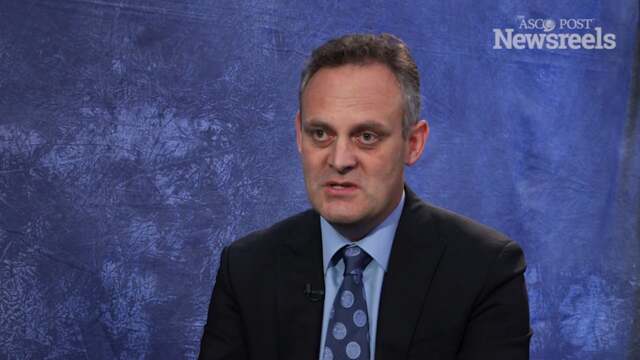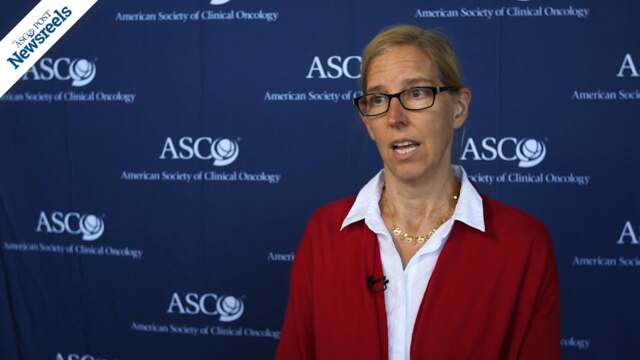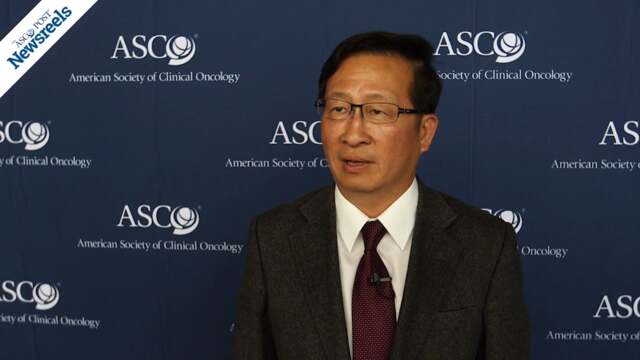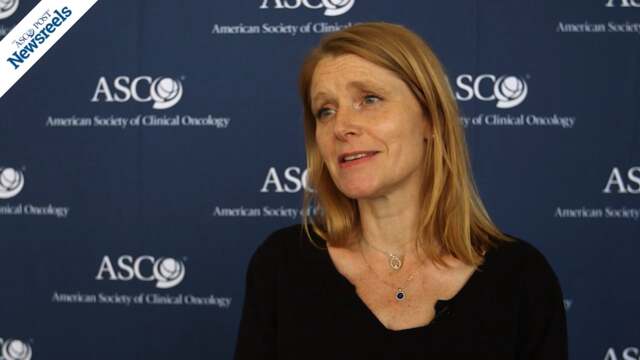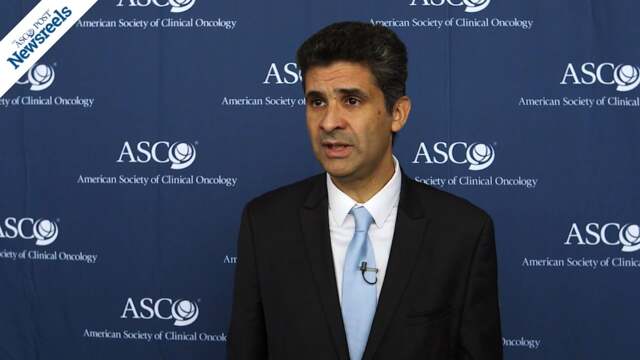Ronald J. Buckanovich, MD, PhD, on Ovarian Cancer: Expert Perspective on the SOLO2 Trial
2017 ASCO Annual Meeting
Ronald J. Buckanovich, MD, PhD, of the University of Michigan, discusses study findings on health-related quality of life with maintenance olaparib compared with placebo following chemotherapy in patients with germline BRCA-mutated platinum-sensitive relapsed serous ovarian cancer. (Abstract 5507)
Arnaud Scherpereel, MD, PhD, of the University Hospital of Lille, discusses phase II study findings on second- or third-line nivolumab vs nivolumab plus ipilimumab in malignant pleural mesothelioma patients. (Abstract LBA8507)
Maura L. Gillison, MD, PhD, of The University of Texas MD Anderson Cancer Center, discusses her findings on the impact of prophylactic human papillomavirus vaccination on oral HPV infections among young adults in the United States. (Abstract 6003)
Ann-Lii Cheng, MD, PhD, of the National Taiwan University Hospital, discusses phase III study findings on lenvatinib vs sorafenib in first-line treatment of patients with unresectable hepatocellular carcinoma. (Abstract 4001)
Solange Peters, MD, PhD, of the University of Lausanne, examines the study findings on nivolumab ± ipilimumab in advanced small cell lung cancer, in the first report of a randomized expansion cohort. (Abstract 8503)
Karim Fizazi, MD, PhD, of the University Paris-Sud, discusses study findings on androgen-deprivation therapy with abiraterone acetate plus prednisone or placebos in newly diagnosed high-risk metastatic hormone-naive prostate cancer. (Abstract LBA3)
